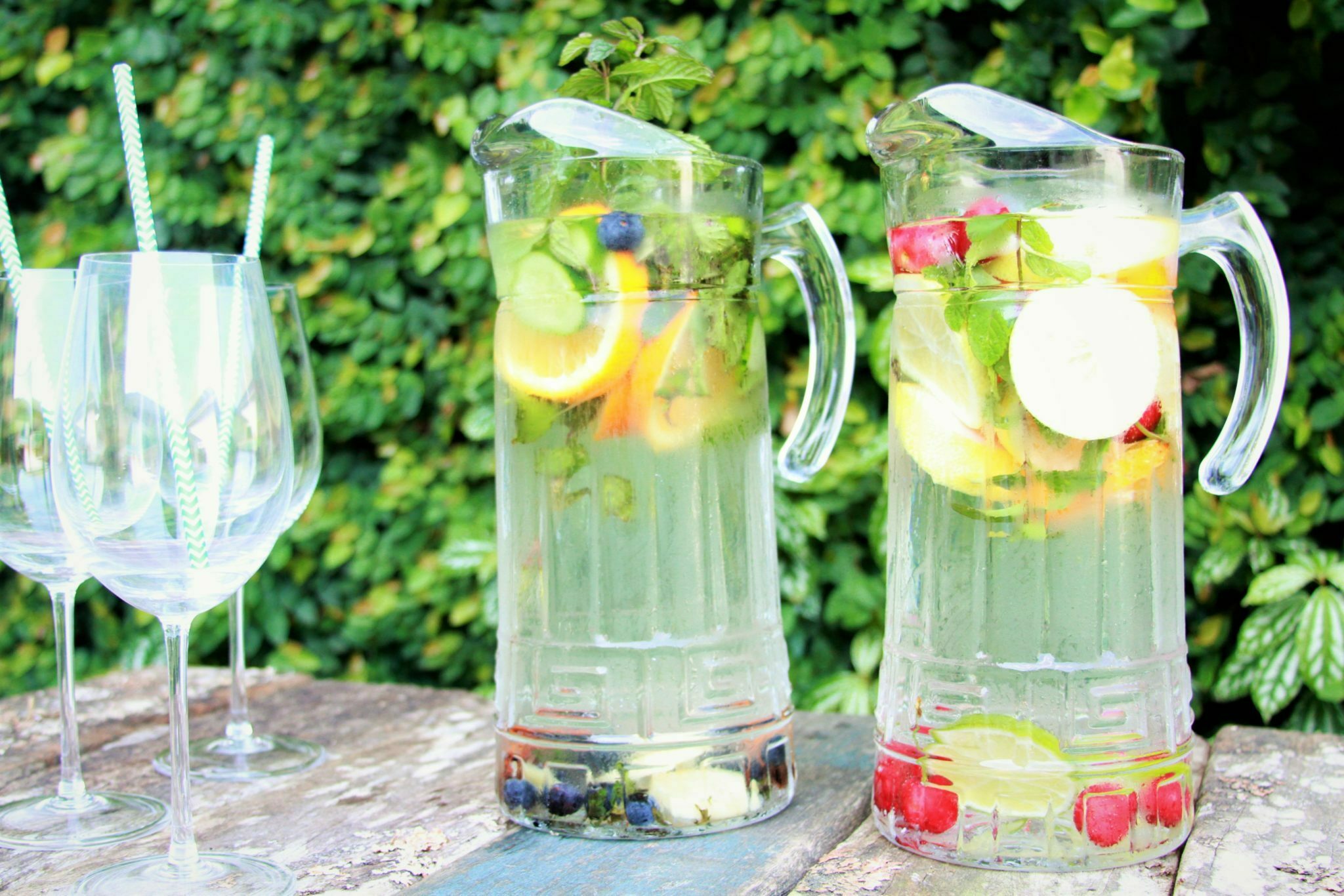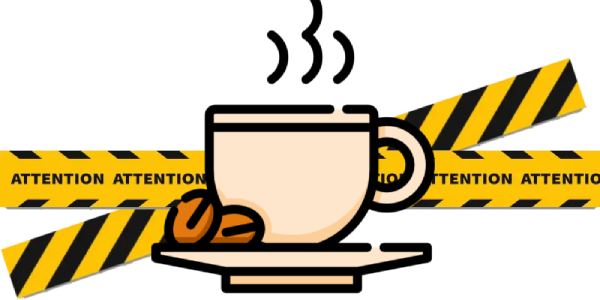Introduction: Water is Life, But What About "Detox"?
In the vast and sometimes confusing universe of wellness, two concepts reign supreme in popularity and importance: hydration and detoxification, or the famous “detox.” We are constantly reminded of the vital need to drink water, a non-negotiable pillar for health. Simultaneously, we are inundated with aggressive marketing promoting restrictive diets, miracle juices, and “special” waters, all promising a deep cleanse of the body, elimination of accumulated toxins, and complete renewal. But do these promises hold up? What does science really say about “detox”? And what is the true role of simple, yet powerful, hydration in this scenario?
This article is your definitive and straightforward guide to navigating these waters. We will dive deep into the science behind essential hydration, exploring why every cell in your body cries out for water. Then, we will demystify the concept of detox, separating proven facts from the convenient fiction created by the industry. Most importantly, you will learn practical, safe, and effective strategies to support the incredible natural cleansing systems your body already possesses. Prepare to abandon the myths and embrace the knowledge that will truly bring more health, energy, and vitality to your life in 2025.
The Undeniable Importance of Hydration: Why is Water Essential?
Think of your body as a complex and finely tuned biological machine. Water is the lubricant, solvent, transporter, and thermal regulator that keeps this machine running smoothly. Composed of approximately 60% water, our body depends on this precious liquid for virtually all its vital functions, far beyond simply quenching thirst.
Essential Vital Functions: Water is the medium where countless biochemical reactions occur. It transports vital nutrients and oxygen to cells, removes metabolic waste and toxins through urine and sweat, regulates body temperature through perspiration, lubricates and cushions joints, aids in digestion and nutrient absorption, maintains skin elasticity, and is crucial for brain function, including concentration, memory, and mood.
Proven Health Benefits: Staying adequately hydrated brings a cascade of benefits. You can expect to feel more physical energy and mental clarity, healthier, more vibrant skin, reduced frequency of headaches (often caused by dehydration), improved bowel function preventing constipation, and even aid in weight management, as water increases satiety and can slightly boost metabolism. Furthermore, proper hydration is fundamental for kidney health, helping them filter blood efficiently.
How Much to Drink? Unraveling Individual Needs: The famous “8 glasses a day” recommendation (about 2 liters) is a good generic starting point, but far from a universal rule. Your water needs are unique and influenced by several factors:
– Physical Activity Level: The more you exercise and sweat, the more water you need to replace.
– Climate: High temperatures and low humidity increase fluid loss.
– Overall Health: Conditions like fever, vomiting, or diarrhea increase hydration needs. Some medical conditions (kidney, heart) may require fluid restriction – consult your doctor.
– Pregnancy and Breastfeeding: Needs increase significantly during these phases.
– Age and Body Weight: Factors influencing metabolism and body composition.
– Practical Foolproof Tip: Forget counting exact glasses and pay attention to your body’s signals. Thirst is already a sign that you have started to dehydrate. A more reliable indicator is the color of your urine: it should consistently be light yellow, almost transparent. If it’s dark, it’s a clear sign to increase water intake. Drink water regularly throughout the day, even before feeling thirsty.
Stay Alert: Recognizing the Signs of Dehydration
Dehydration isn’t an “all or nothing” state; it occurs on a spectrum. Ignoring early signs can lead to more serious consequences. It’s crucial to learn to recognize the warnings your body sends.
Mild to Moderate Signs (Yellow Alert):
– Thirst: The most obvious sign, but already indicates a fluid deficit.
– Dry or Sticky Mouth: Reduced saliva production.
– Dark Urine and/or Strong Odor: Kidneys concentrate urine to conserve water.
– Decreased Urination Frequency: Fewer trips to the bathroom.
– Unexplained Fatigue and Drowsiness: Dehydration affects energy levels.
– Headache: A common symptom, often the first to appear.
– Mild Dizziness or Lightheadedness: Especially when standing up quickly.
– Dry Skin Lacking Elasticity: Loss of skin turgor.
– Constipation: Water is essential for proper bowel function.
– Bad Mood or Irritability: The brain is very sensitive to hydration status.
Severe Signs (Red Alert – Seek Medical Help Immediately):
– Extreme, Uncontrollable Thirst.
– Total Absence of Urine for Several Hours or Very Dark Urine (tea-colored).
– Rapid, Shallow Breathing.
– Rapid, Weak Heartbeat.
– Intense Dizziness, Severe Mental Confusion, Disorientation, or Delirium.
– Visibly Sunken Eyes.
– Extremely Dry, Cold, Pale Skin that doesn’t return to normal when pinched (severe turgor loss).
– Loss of Consciousness or Fainting.
Severe dehydration is a medical emergency. Do not hesitate to seek help if you suspect it.
"Detox": Separating Fact from Fiction
The term “detox” has become ubiquitous in wellness culture, often associated with promises of deep cleansing, rejuvenation, and elimination of supposed “toxins” accumulated from modern diets and polluted environments. However, it’s crucial to understand that your body already possesses incredibly sophisticated and efficient detoxification systems that work 24/7.
The True Detox Heroes: Meet the organs that really do the heavy lifting:
– Liver: The conductor of the detox orchestra. It filters blood coming from the digestive system, metabolizes nutrients, processes medications, alcohol, and countless chemicals (both body-produced and external), transforming them into water-soluble compounds that can be excreted by the kidneys.
– Kidneys: The master blood filters. They remove nitrogenous waste (like urea, a product of protein metabolism), excess electrolytes, and other unwanted substances, eliminating them through urine and regulating the body’s water and electrolyte balance.
– Lungs: Responsible for gas exchange, they eliminate carbon dioxide (a metabolic waste product) and can expel other volatile toxins.
– Lymphatic System: A complex network that transports cellular waste and aids in immune response.
– Intestines: Besides absorbing nutrients, the intestinal barrier prevents many toxins from entering the bloodstream and eliminates undigested waste through feces.
– Skin: Although to a lesser extent, the skin eliminates some toxins through sweat.
Debunking Common Detox Myths: Many popular “detox” practices lack scientific evidence and can even be harmful:
– Extremely Restrictive Detox Diets (Juices, Special Teas, Mono-diets): These diets usually provide very few calories, proteins, and essential nutrients. The rapid weight loss observed is mostly water and muscle glycogen loss, not fat or “toxins.” In the long run, they can lead to nutritional deficiencies, muscle mass loss, and metabolic slowdown. Furthermore, the liver needs specific nutrients (amino acids, vitamins, minerals) to perform its detoxification functions – restrictive diets can ironically impair this process.
– Colon Cleansing (Colonics, Frequent Enemas): Except for specific medical indications, colon cleansing is unnecessary. The intestine has its own cleaning mechanisms. These practices can disrupt the delicate balance of the gut microbiome (beneficial bacteria), cause dehydration, electrolyte imbalances, and, in rare cases, bowel perforation.
– Miracle “Detox” Products (Pills, Powders, Patches): The vast majority of these products lack robust, independent scientific studies proving their ability to eliminate specific toxins beyond what the body already does naturally. Often, perceived effects are placebo or the result of other components (like hidden laxatives).
The True Meaning of “Supporting Detoxification“: Instead of trying to force a “cleanse,” the focus should be on optimizing and supporting the natural functions of your detoxification organs. This means providing your body with the building blocks (nutrients) and ideal conditions (healthy lifestyle) so it can perform its job with maximum efficiency.

Detox Water: Flavored Hydration or Bottled Miracle?
The photos are beautiful: crystal clear pitchers filled with colorful slices of fruit, cucumbers, and floating herbs. “Detox water” has become a symbol of health and wellness. But beyond the attractive aesthetics, what are its real benefits?
The Undisputed Benefit: Hydration! Let’s be clear: the biggest and most significant benefit of detox water is that it helps you drink more water. For many people who find plain water monotonous, adding a natural, refreshing flavor can be a great incentive to increase fluid intake throughout the day. And, as we’ve seen, adequate hydration is fundamental.
A Subtle Nutrient Bonus: Yes, infusion releases some vitamins (mainly vitamin C from citrus fruits) and antioxidants from the ingredients into the water. However, the amounts are generally very small compared to consuming the whole foods. You’ll get far more nutrients by eating an orange than by drinking water infused with a few slices of it.
Analyzing Exaggerated Claims:
– “Miraculously Eliminates Toxins“: There is no scientific evidence that ingredients infused in water have the ability to “pull” or neutralize specific toxins from the body more effectively than plain water, which already aids the kidneys in waste elimination.
– “Balances Body pH“: Our body has very efficient buffering mechanisms (mainly in the lungs and kidneys) that maintain blood pH within an extremely narrow range (slightly alkaline). The acidity or alkalinity of the foods and drinks we consume has a minimal and temporary impact on urine pH but does not significantly alter blood pH in healthy individuals.
– “Magically Accelerates Weight Loss“: Drinking more water (whether plain or infused) can aid weight loss by increasing satiety and potentially boosting metabolism. However, detox water does not possess intrinsic fat-burning properties superior to plain water.
Smart Conclusion: Detox water is an excellent strategy to make hydration more enjoyable and interesting. It’s a healthy alternative to sugary sodas and juices. Enjoy it for its flavor and hydrating capacity, but don’t expect it to perform detox or weight loss miracles on its own.
Practical Strategies to Boost Your Daily Hydration
Turning hydration into a consistent habit can be easier than you think. Adopt these simple and effective strategies:
Your Bottle, Your Companion: Invest in a **[High-Quality Reusable Water Bottle (e.g., Hydro Flask, Klean Kanteen, Stanley)](Generic Affiliate Link Amazon)** that you like and keep it always nearby – on your desk, in your bag, in the car. Seeing it constantly will serve as a visual reminder.
Technology on Your Side: Use water reminder apps on your smartphone or set regular alarms to take a break and drink a glass of water.
Morning and Evening Ritual: Start the day by drinking a large glass of water (you can add lemon if you like) to rehydrate after sleep. End the day with a small glass a few hours before bed (to avoid interrupting sleep with bathroom trips).
Hydration During Exercise is Law: Drink water before, during (small sips every 15-20 minutes), and after physical activity to replace fluids lost through sweat. For long or intense workouts, consider electrolyte drinks.
Flavor Naturally: Tired of plain water? Make your own “detox water” by adding slices of lemon, lime, orange, cucumber, fresh mint leaves, sliced ginger, or frozen berries. It’s refreshing and calorie-free.
Eat Your Water: Many foods have high water content and contribute to your total hydration. Include in your diet: watermelon, melon, strawberries, cucumber, celery, lettuce, tomatoes, oranges, soups, and broths.
Healthy Alternatives: Herbal teas (caffeine-free and sugar-free), like chamomile, mint, or hibiscus, and natural coconut water (rich in electrolytes, but watch the sugar content) are great options for variety.
The Urine Test: Get used to observing the color of your urine throughout the day. It’s your personal, real-time hydration indicator.
Support Your Body's Natural Detoxification: The Real "Detox"
Forget quick fixes and focus on what truly works: creating a lifestyle that nourishes and supports your body’s innate detoxification systems. The real “detox” is an ongoing process, not an isolated event.
Smart Nutrition as the Foundation:
– Prioritize Fiber: Fiber is essential for gut health, feeding beneficial bacteria and promoting regularity, which aids in waste elimination. Find it abundantly in fruits, vegetables, legumes (beans, lentils, chickpeas), and whole grains (oats, quinoa, brown rice).
– Invest in Antioxidants: They fight free radicals, byproducts of metabolism and exposure to environmental toxins, which can damage cells. Load your plate with berries, dark leafy greens (spinach, kale), beets, artichokes, nuts, and seeds.
– Support Your Liver: Certain foods contain compounds that aid liver detoxification pathways. Include cruciferous vegetables (broccoli, cauliflower, cabbage, Brussels sprouts), garlic, onions, turmeric (with black pepper for better absorption), and green tea.
Minimize Toxic Load: Be mindful of what you put into your body. Reduce consumption of alcohol (which burdens the liver), ultra-processed foods (high in additives, bad fats, and sugar), added sugars, and trans fats. Opt for organic foods whenever possible to minimize pesticide exposure.
Move Regularly: Physical exercise improves blood and lymphatic circulation, aiding nutrient transport and waste removal. Sweating also helps eliminate some toxins through the skin.
Prioritize Quality Sleep: During sleep, your brain undergoes a cleansing process (via the glymphatic system), and cellular repair occurs throughout the body. Aim for 7-9 hours of quality sleep per night.
Manage Stress Effectively: Chronic stress impairs detoxification pathways. Incorporate stress-reducing practices like meditation, deep breathing, yoga, spending time in nature, or engaging in hobbies you enjoy.
Hydrate Adequately (Full Circle!): Water is crucial for kidney function (filtering waste into urine) and bowel regularity (eliminating waste through feces).
Recommended Products (Focused on Hydration and Natural Support)
While there are no magical detox pills, some products can support your healthy hydration habits and overall wellness:
-
High-Quality Reusable Water Bottles (e.g., Hydro Flask, Klean Kanteen): Durable, temperature-retaining, and a great motivation to drink more water throughout the day. An excellent investment in your hydration routine.
-
Water Filters (Pitcher or Faucet – e.g., Brita, Pur): If your tap water tastes unpleasant or you’re concerned about impurities like chlorine, a filter can significantly improve both taste and quality—making water more inviting to drink.
-
Sugar-Free Electrolyte Supplements (e.g., Nuun Sport, Liquid I.V. Hydration Multiplier): Especially useful for athletes, heavy sweaters, or those in hot climates. They help replenish lost minerals and support cellular hydration.
-
Organic Herbal Teas (e.g., Dandelion Root, Milk Thistle, Ginger, Turmeric): These herbs have been traditionally used to support liver and digestive function. Choose high-quality organic options whenever possible.
- Liver Support (LivCare): A powerful blend of herbs and antioxidants designed to help cleanse and protect your liver gently and effectively.
Important: Use these products in moderation. Always research possible interactions and consult a healthcare professional before using herbs for therapeutic purposes—especially if you have pre-existing medical conditions.
Conclusion: Embrace Hydration, Support Your Body
Hydration is not just about drinking water; it’s about providing the essential fluid your body needs to function optimally at every level. Forget the confusing and often misleading hype around commercial “detox” products and restrictive diets. Your body possesses remarkable natural detoxification systems.
The most effective approach is simple yet profound: prioritize consistent hydration and adopt a lifestyle that supports your body’s innate ability to cleanse itself. Focus on a nutrient-dense diet rich in fiber and antioxidants, minimize exposure to unnecessary toxins, move your body regularly, manage stress, and get enough quality sleep. By embracing these fundamental principles, you empower your body to perform its natural detoxification processes efficiently, leading to genuine, sustainable health and vitality in 2025 and beyond. Start today by simply reaching for that glass of water!
Scientific References
Popkin, B. M., D’Anci, K. E., & Rosenberg, I. H. (2010). Water, hydration, and health. Nutrition reviews, 68(8), 439–458.
Jéquier, E., & Constant, F. (2010). Water as an essential nutrient: the physiological basis of hydration. European journal of clinical nutrition, 64(2), 115–123.
Klein, A. V., & Kiat, H. (2015). Detox diets for toxin elimination and weight management: a critical review of the evidence. Journal of human nutrition and dietetics : the official journal of the British Dietetic Association, 28(6), 675–686.
Grant, L. (2017). Chapter 2 – The Liver: Mechanisms of Detoxification. In Integrative Medicine (4th ed.). Elsevier.
Hodges, R. E., & Minich, D. M. (2015). Modulation of Metabolic Detoxification Pathways Using Foods and Food-Derived Components: A Scientific Review with Clinical Application. Journal of nutrition and metabolism, 2015, 760689.




